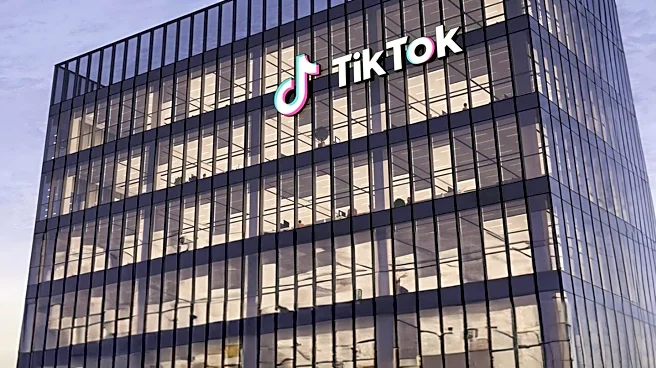What's Happening?
A TikTok user, known as @haleyfernandes__, has gained viral attention after sharing a humorous moment from a recent job interview. During the interview, she was asked to name a person she admires whom she has never met. Instead of choosing well-known
figures like Barack Obama or Ellen DeGeneres, she named Tana Mongeau, a social media personality and YouTuber. The video, posted on June 25, has garnered over 777,000 views and more than 110,000 likes. The unexpected choice amused viewers, leading to a flurry of comments on the platform. Tana Mongeau is recognized for her unfiltered storytelling and online presence, having risen to fame in the mid-2010s through YouTube and later starring in her own MTV reality show.
Why It's Important?
The incident highlights the evolving nature of influence and admiration in the digital age, where social media personalities can hold as much sway as traditional public figures. This shift reflects broader societal changes in how individuals, particularly younger generations, perceive role models. The viral response underscores the impact of social media platforms like TikTok in shaping public discourse and cultural trends. It also illustrates the power of humor and relatability in content creation, as users engage with content that resonates with their own experiences and perspectives.
What's Next?
As social media continues to influence public opinion and cultural norms, it is likely that more unconventional figures will emerge as role models. This trend may prompt businesses and organizations to reconsider how they engage with younger audiences, potentially leading to new marketing strategies that leverage the influence of digital personalities. Additionally, the incident may inspire other job seekers to approach interviews with a blend of authenticity and humor, recognizing the value of standing out in a competitive job market.
Beyond the Headlines
The viral moment also raises questions about the criteria for admiration and the qualities that make someone a role model in contemporary society. It challenges traditional notions of leadership and success, suggesting that relatability and personal connection may be as important as achievements or status. This shift could have long-term implications for how individuals and institutions define and celebrate success.

















